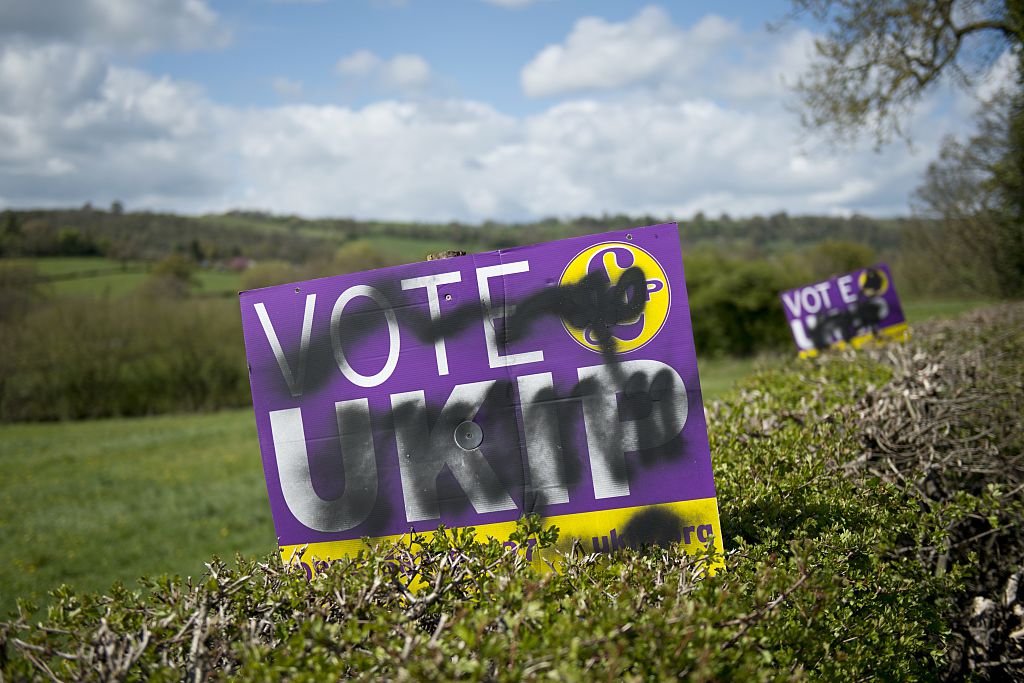There has never been a more pressing need for a home for Brexit voters disillusioned by the spectacle of recent events. Yet Ukip, under a leader fixated by EDL founder Tommy Robinson, has marched to a place where very few Leave voters wish to go.
When I left Ukip last week, what caused the biggest stir was the fact that it was not to sit as an independent but to join the SDP. Many political journalists did not know that the party still existed, let alone that it has been Eurosceptic for many years. But the party has been growing fast over the past few months as the more moderate elements of Ukip – along with some determined Labour and Tory leavers – have sought a centre-ground party that will campaign to honour the referendum verdict.
While commentators have spent much time dwelling on the creation of a ‘centrist’ party to thwart Brexit, the rejuvenation of a centre party with a very different approach has gone under the radar. Until now. But will the SDP end up marginalised in the same was as other parties have been?
Ukip was ultimately squeezed out by David Cameron’s granting of a referendum on EU membership (Brexit, if achieved properly, will be the party’s great legacy). Another part of the reason for its failure to break into Westminster was its own right-wing political baggage. The party’s fringe element spouted a patriotic fervour that came close, at times, to the blood and soil variety of ultra-nationalism; a strong Thatcherite wing that was forever talking approvingly about unpopular pursuits such as a mission to privatise the NHS also did great damage to winning over voters. The Tories – and Labour – successfully weaponised both of these factors in harming Ukip’s chances at the ballot box.
It is obvious that neither of these sticks could be used against the SDP. The party, in so far as it is remembered by older voters, is associated with reasonableness and moderation. It also has a harder ideological edge these days, with the strong advocacy of communitarian values of the sort that Nick Timothy tried – and failed – to instil in the Tories in the early days of May and that Lord Glasman’s Blue Labour movement is similarly finding falls on deaf ears in Corbyn’s party.
But the SDP is not afraid to take issue with the unyielding “double liberalism” – social and economic – that has led establishment parties across the West into dire straits. Reading its New Declaration, released last month, was what persuaded me to join when I realised the mission to turn Ukip into a mainstream political offering had come to the end of the road.
The party is unapologetic about advocating the nation state as a key factor in sustaining social solidarity. On the economy it is putting together a balanced, social market approach and it is ready to campaign hard against the recent obsession with identify politics that is so impairing our overall cultural and social cohesion.
Recently, the journalist John Rentoul tweeted out a study that showed Social Democracy to be the most popular political philosophy among British voters – far more popular than socialism, libertarianism or anything else. If only it had a party that properly believed in it and could get the message out there. If the SDP continues to grow at its present rate then pretty soon it will have.
In the British system, creating new political parties – and getting them a substantial share of the market – is a fearfully difficult undertaking. But given that millions of pro-Leave voters currently feel that they have literally no party to vote for, I feel it is my duty to join with others and try.
Patrick O’Flynn is MEP for the East of England





Comments